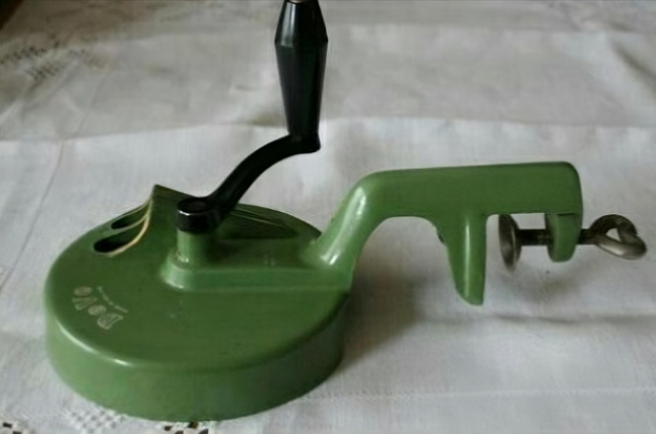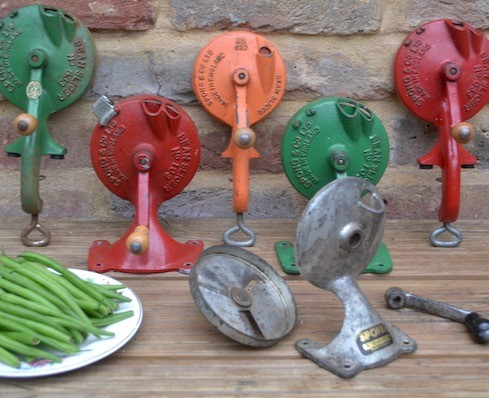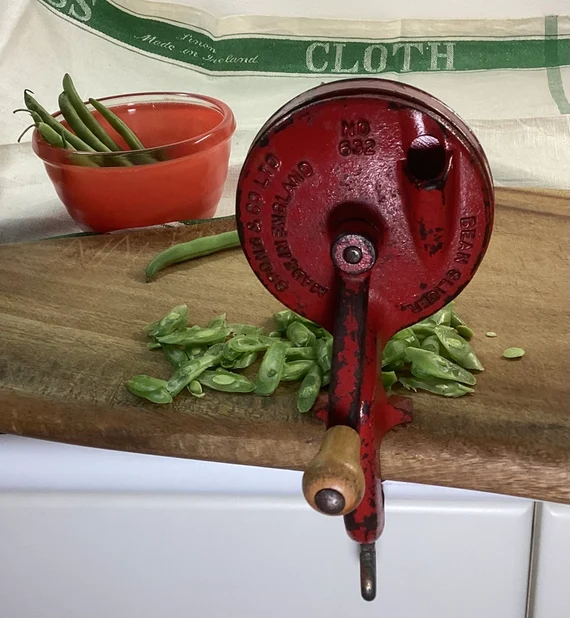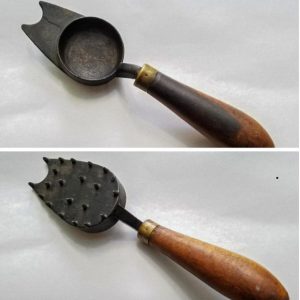When it comes to making meal prep efficient, bean slicers are the unsung heroes of the kitchen. Whether you’re slicing green beans for a quick stir-fry or processing a bumper crop of runner beans for preservation, these tools save time, ensure precision, and reduce effort. But what makes bean slicers so indispensable? Let’s explore their types, history, uses, and why no kitchen should be without one.
What Are Bean Slicers?

A bean slicer is a specialized kitchen tool designed to cut beans into thin, uniform slices. These slices cook evenly, making them perfect for a variety of recipes. Whether you’re prepping beans for a family dinner or preserving a harvest for future use, a bean slicer simplifies the process and delivers consistent results.
From traditional manual slicers to modern electric models, there’s a bean slicer to suit every kitchen need.
The Different Types of Bean Slicers
Not all bean slicers are created equal. They come in various designs to cater to different preferences and workloads. Here’s a breakdown of the most popular types:
Manual Block Slicers
Simple and effective, manual block slicers feature a block with tightly strung wires across an open area. To use, you push the beans through the wires, creating clean, even slices.
- Advantages: Compact, lightweight, and easy to store.
- Best For: Small quantities and occasional use.
Hand-Cranked Slicers
Hand-cranked slicers add efficiency to the slicing process. These devices feature a hopper for feeding beans and a crank that you turn to slice them. Many models can handle multiple beans at once and even remove strings in the process.
- Advantages: Faster than manual block slicers, ideal for larger batches.
- Features to Look For: Models with suction cups or clamps for stability.
- Notable Brands: Spong & Co. is renowned for its durable hand-cranked slicers.
Electric Bean Slicers
Modern electric kitchen appliances sometimes include bean-slicing attachments. These devices are designed for maximum efficiency, requiring minimal effort from the user.
- Advantages: Perfect for bulk processing and commercial use.
- Best For: Busy kitchens that frequently prepare large quantities of beans.
How to Use a Bean Slicer Like a Pro
While bean slicers are straightforward tools, a few tips can make your slicing process even smoother:
- Prepare Your Beans: For runner beans, pare off the stringy sides with a knife before slicing to avoid clogging the slicer.
- Set Up the Slicer: Place a plate or bowl beneath the slicer to catch the slices, ensuring a mess-free process.
- Work in Batches: Feed multiple beans into hand-cranked slicers to save time.
- Clean Regularly: After each use, clean your slicer to prevent residue buildup and maintain its performance.
Why Bean Slicers Are Essential for Cooking and Preservation
Bean slicers are more than just time-savers; they also enhance the quality of your cooking and preservation efforts.
Uniform Slices for Better Cooking
Evenly sliced beans cook consistently, which is crucial for recipes like stir-fries, casseroles, and soups. Uniform cuts also elevate the presentation of your dishes, making them look as good as they taste.
Efficient Preservation
If you’re dealing with a large harvest of beans, a slicer is your best friend. It speeds up preparation for freezing, canning, or salting. By ensuring consistent cuts, it also makes storage more efficient, saving space and extending the shelf life of your produce.
A Brief History of Bean Slicers

Did you know bean slicers have been around since the 1860s? One of the earliest designs was the Batkins bean slicer, but it was James Osborn Spong of Spong & Co. who revolutionized the market.
Spong’s durable and practical slicers became household staples, even earning a spot in the kitchens of royalty. Today, vintage Spong models are collector’s items, valued for their craftsmanship and timeless design.
Why Every Kitchen Needs a Bean Slicer
Still wondering if a bean slicer is worth the investment? Here’s why it’s a game-changer:
- Time Efficiency: Prepping beans with a slicer is significantly faster than using a knife.
- Consistency: Achieve perfect, uniform slices every time.
- Versatility: From manual models to electric options, there’s a slicer for every need and kitchen size.
- Preservation Power: Streamline the process of preparing beans for storage, ensuring less waste and better organization.
Choosing the Right Bean Slicer for Your Needs

Selecting the perfect bean slicer depends on your kitchen habits and the volume of beans you typically process:
- For Small Batches: Go for a manual block slicer. It’s easy to use and store, making it perfect for occasional cooking.
- For Larger Quantities: Opt for a hand-cranked model with multi-bean capacity and string-removal features.
- For Maximum Efficiency: If you regularly process beans in bulk, an electric slicer or an appliance with a bean-slicing attachment is ideal.
Bean Slicers: A Legacy of Practicality and Innovation
Bean slicers have stood the test of time, evolving from simple manual tools to modern kitchen appliances. They represent a blend of practicality and innovation, proving that even the most straightforward tools can transform food preparation.
Whether you’re a home cook looking to save time or a gardening enthusiast preserving your harvest, a bean slicer is a worthwhile addition to your kitchen arsenal.
Conclusion
Bean slicers are more than just kitchen tools—they’re time-saving marvels that enhance both cooking and preservation. From the simplicity of manual block slicers to the efficiency of electric models, these devices cater to every need, making bean prep quick, precise, and hassle-free.
Rooted in a rich history of innovation, bean slicers continue to hold their place in kitchens worldwide. So why not invest in one and see the difference it makes in your cooking routine? Once you experience the ease and efficiency of a bean slicer, you’ll wonder how you ever managed without it.


